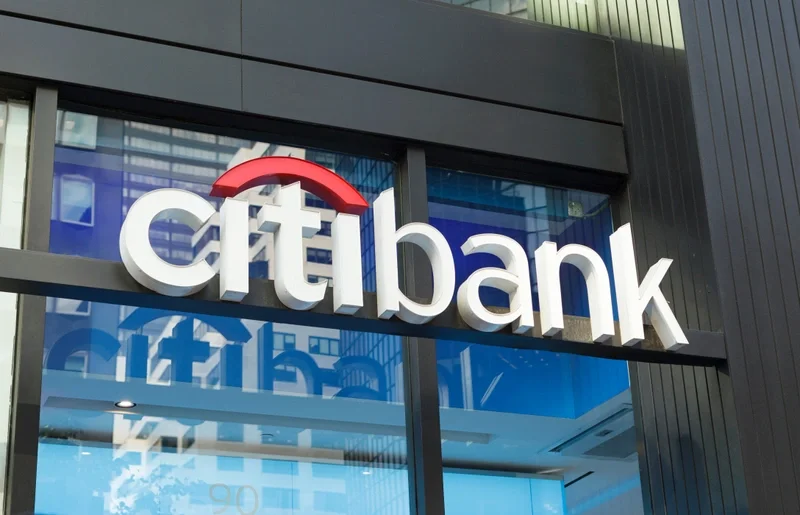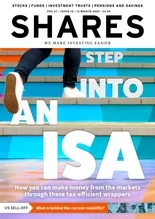
As investors gear up for the latest earnings season, stubbornly resistant inflation continues to dominant the mood music on US markets. After Wednesday’s (10 Apr) hotter-than-expected CPI data and the FOMC minutes, analysts at investment banks Citi, UBS, and Goldman Sachs all said they don’t see the Federal Reserve cutting rates in June, a blow to hopes that the interest rates down cycle will get going anytime soon.
This will make the big US bank earnings all the more interesting to monitor when they kick-off earnings on Friday (12 Apr), with JPMorgan (JPM:NYSE), Wells Fargo (WFC:NYSE), and Citigroup (C:NYSE) doing the early heavy lifting.
Investors will be looking beyond just earnings and sales, with the health of the commercial real estate sector and the strength of consumer and business loans demand other points to track. Investors will also want to know what’s expected for the upcoming quarters, especially considering the recent shift in rate cut expectations by the Fed.
The S&P 500 closed higher Thursday (11 Apr), led by tech, as data showing cooling producer prices eased inflation jitters, and powered by a more than 4% gain for Apple (AAPL:NASDAQ) on a Bloomberg report that the tech giant is looking to boost Macbook sales by focusing the next upgrade of its M-family of chips on artificial intelligence.
Amazon (AMZN:NASDAQ) was also strong, closing at a record high after CEO Andy Jassy talked up the opportunity for AWS as cloud computing is set for a major boost from generative AI developments.
The big loser of the week was Texas insurer Globe Life (GL:NYSE), which crashed following a short attack report by Fuzzy Panda Research. The short seller accused Globe Life of unethical business practices, claims hotly denied by Globe Life, but the shares tanked anyway.
MODERNA
Biotechnology firm Moderna (MRNA:NASDAQ) saw its shares touch new three month highs this week after announcing positive clinical trial results for its personalised cancer vaccine.
The company said its mRNA-based cancer vaccine in combination with Merck’s (MRK:NYSE) cancer drug Keytruda showed a greater overall survival rate in patients with a type of head and neck cancer than those treated with Keytruda alone.
The experimental vaccine called mRNA-4157 is being developed for melanoma, one of the deadliest skin cancers. In a prior study the vaccine, when administered with Keytruda was found to help reduce the risk of recurrence or death by 49% in patients with melanoma.
Moderna has over 45 vaccines in development as it searches for new products to replenish falling sales of its successful Covid-19 vaccine, its only commercial product on the market.
A stark reminder of the rapid decline in Covid-19 demand came on Thursday (11 Apr) after Moderna said it has paused plans to build a vaccine manufacturing plant in Kenya after not receiving any orders for Covid-19 shots from Africa since 2022.
DELTA AIRLINES
Delta Airlines (DAL:NYSE) was first out of the earnings block reporting better-than-expected results due to ‘quite healthy’ travel demand for spring and summer.
CEO Ed Bastian said business travel was ‘picking up again’ and said that this was why the airline chalk-up profit in the first quarter. Bastian touched on the current concerns over Boeing planes’ safety and delivery, saying he still has ‘full confidence in the company.’
While Delta's fleet includes some Boeing planes, it does not currently operate any of Boeing’s Max aircraft.
Delta Airline shares were marginally higher ending the week up around 2% at $47.36. The US airline reported adjusted net income of $288 million versus analysts’ expectations of $235 million, while guidance for the full year was reiterated at $6 to $7 earnings per share and free cash flow of $3 billion to $4 billion.
DECKERS OUTDOOR
It was a difficult week for investors in Deckers Outdoor (DECK:NYSE), with the footwear designer falling 8.5% to $811.6 following a downgrade from Truist Securities, although given the stock is up 77.5% over one year, a bit of profit-taking was likely at play.
Truist analyst Joseph Civello trimmed his price target for the California-based footwear and apparel firm, best known for its Ugg and Teva brands, by 12% to $864 and downgraded the stock from a ‘buy’ to a ‘hold’, on concerns over a short-term slowdown at high-growth sportswear brand Hoka.
Civello now reckons Hoka might only grow by 25% this year, having previously forecast year-on-year growth of 40%, although the Truist scribe still believes Hoka has good long-term potential.




